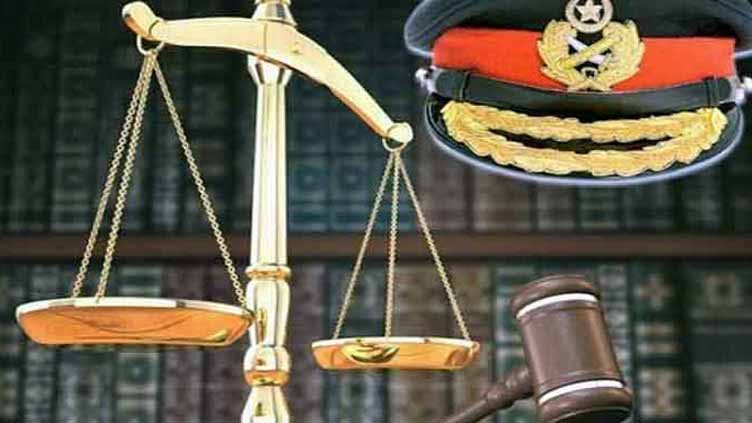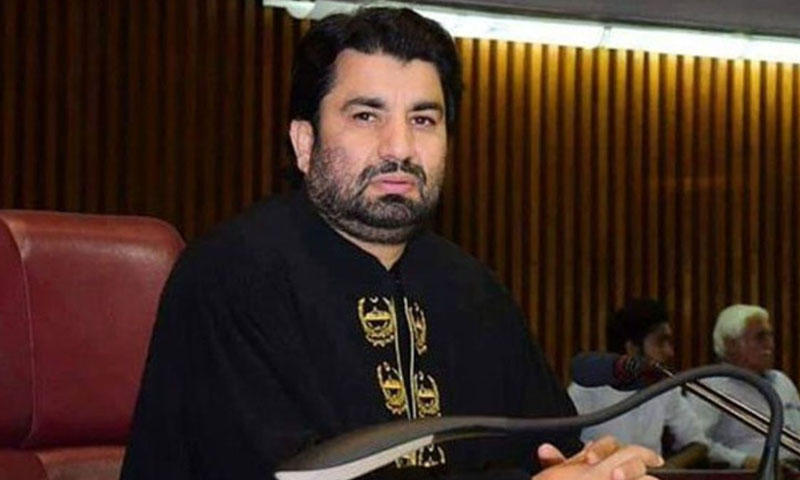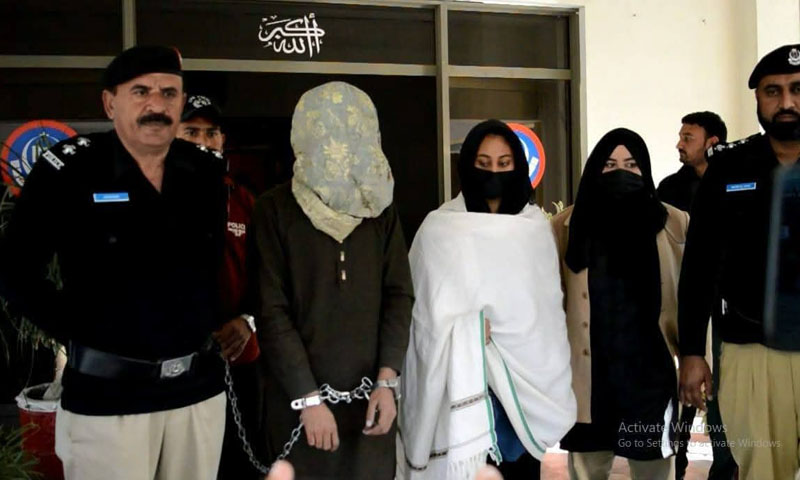- Web Desk
- Feb 09, 2026
Article 8(3) says civilians will not be tried in military courts: Khawaja Hussain
-

- Web Desk
- Jan 30, 2025

ISLAMABAD: The Constitutional Bench of the Supreme Court resumed the hearing of civilians’ trial in military courts. A seven-member bench headed by Justice Aminuddin Khan is hearing the case.
Ministry of Defense’s lawyer Khawaja Haris began reached the rostrum and said that he will conclude his arguments today.
Before delving into the hearing, Justice Jamal Khan Mandokhail issued a clarification on his observation given yesterday. Justice Mandokhail said that his statement was misconstrued by the media. “Yesterday the news reported me saying that two judges call the decision of eight judges wrong. Many retired judges contacted me on this news. I don’t care about the media but accuracy is important. I said this in a general sense.”
Khawaja Haris makes case for military courts in front of Constitutional Bench
Justice Mandokhail added, “I had said that two people stand up and say that the decision of eight judges is wrong. Some media colleagues reported it incorrectly.”
After the clarification, Khawaja Haris began his arguments, “Article 175 of the constitution mentions courts. There is no mention of military courts in the judicial system under Article 175. Military courts are formed under a separate law which is recognised.”
Justice Mandokhail responded, “The powers of the courts formed under Article 175 are extensive. [But] the jurisdiction of the court formed under a specific law is limited.”
Khawaja Haris concluded his arguments. The federal government also endorsed the arguments presented by Khawaja Haris.
The Additional Attorney General said that if need be, then responses will be provided to the court point by point. Punjab government, the Ministry of Interior, the Ministry of Law and the Shuhada Forum endorsed the arguments of Khawaja Haris.
The Khyber Pakhtunkhwa government’s lawyer informed the court that the provincial government has withdrawn the appeal. The counsel of Balochistan government Sikandar Mohmand also endorsed Khawaja Haris’ arguments.
In response, Justice Mandokhail raised the issue that how could a private lawyer advocate for the Balochistan government. “If you want to have a private lawyer, then close the Advocate General’s Office,” Justice Mandokhail said.
The bench also raised the issue that why is Balochistan government involved in this matter, since the case is primarily pertaining to the military trials of those convicted of May 9 events – which happened in Punjab and Khyber Pakhtunkhwa.
“First, the Balochistan government will have to prove its rightful claim. It will have to be explained what the provincial government has to do with this matter,” Justice Mandokhail added.
Balochistan government lawyer Sikandar Bashir Mohmand came to the rostrum. Justice Muhammad Ali Mazhar asked, “Tell me any rules of business or law on how a private lawyer represents the government?”
The lawyer responded that there are precedents of the Supreme Court decisions in which private lawyers have been allowed.
Let’s leave this issue and prove your right to claim, Justice Mandokhail asked lawyer Mohmand. The counsel responded that the Balochistan government was made a party in the main case.
Justice Mandokhail also pointed out the counsel of Martyrs Forum, Shamail Butt, and asked that the forum was not a party to the case, so how did it file an appeal?
Shamail Butt responded, “Two laws were declared null and void on the request of a citizen. I am representing the families of the martyrs.”
Former chief justice Jawad S Khawaja’s lawyer Khawaja Ahmed Hussain began arguments. “It was said that there is room for a writ against the decision of the military court in the High Courts,” Khawaja Hussain said. “The scope for filing a writ cannot be a justification for the deprivation of fundamental rights,” he added.
“Shouldn’t there be a difference between a civilian and an accused associated with the forces?” Justice Musarrat Hilali asked, adding, “The constitution protects fundamental rights for a civilian.” Khawaja Hussain answered, “The case of a common citizen is different.”
The bench asked, “In Article 8(3), instead of members of the armed forces, should only the armed forces be mentioned?”
“It was decided that ordinary citizens will not be tried there,” Khawaja Hussain answered, adding, “I would like to read Article 8(3) of the Constitution.”
He said that the constitution says in Article 8 that Army Act was exempted from fundamental rights in Article 8. “Article 8(3) mentions “members” of the armed forces. Those who formulated the constitution made everything clear by mentioning “members” of the armed forces. It became clear that this law does not apply to ordinary citizens,” Khawaja Hussain added.
“If there was to be room for ordinary citizens, the words would have been different,” he added.
Justice Mandokhail said, “Then instead of members of the armed forces, Article 8(3) would only have had the armed forces?” Lawyer Khawaja Hussain replied, “Yes, of course, it has been decided that ordinary citizens will not be tried there.”
“The second point is that if there is a nexus among ordinary citizens, then a trial can be held,” he said, adding, “The words of nexus are not in the constitution or law, only in a decision.”
The lawyer said that his case is not that these accused should be released. “The case is only that civilians cannot be tried in military courts,” he said, adding a question that “Why does the government not trust civil courts?”
The counsel said that the court martial of civilians has been going on for 54 years, which should stop, Khawaja Hussain added.
Justice Naeem Akhtar Afghan asked, “Has anyone read the military trial of May 9 accused?”
“Is there any difference between civilians and uniformed?” Justice Hilali said, adding, “If a soldier commits a civil crime, he gets all the rights.”
Lawyer Khawaja Hussain added, “Kulbhushan Jadhav got the right to appeal in high court through legislation. Common citizens are not even given the right to appeal in high courts.”
SC’s Constitutional Bench debates civilian trials in military courts
Justice Mandokhail asked, “If a civilian commits a crime along with a soldier, won’t there be a trial?”
“What will happen if all crimes are included in the Army Act tomorrow,” lawyer Khawaja Hussain responded, adding, “To justify the trial of civilians in military courts, it must be said that all fundamental rights are protected in this trial.”
The constitutional bench adjourned the hearing until tomorrow. Khawaja Ahmed Hussain will continue his arguments tomorrow as well.




